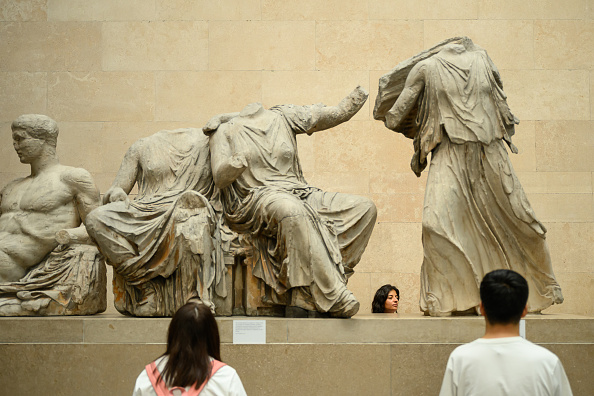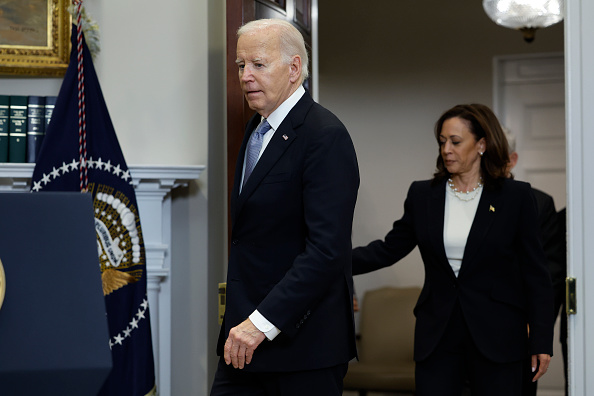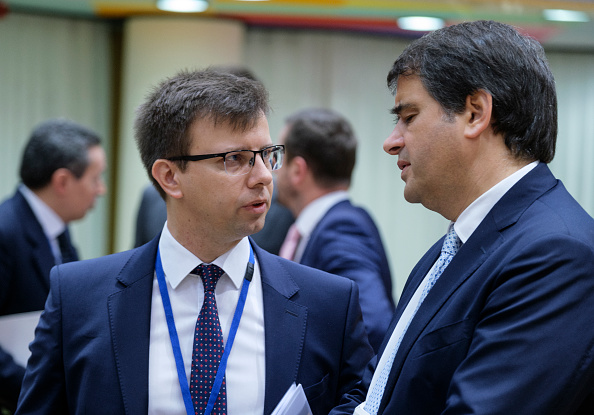The European Union has hailed the fall of Bashar al-Assad in Syria, with the EU’s chief foreign affairs official calling it “a positive and long-awaited development” that “also shows the weakness of Assad’s backers, Russia and Iran”.
High Representative for Foreign Affairs and Security Policy Kaja Kallas did not rule out working with any Syrian party or neighbouring government in what she said would be a “long and complicated ” process of rebuilding Syria, where the EU’s priority was to “ensure security in the region”.
“I will work with all the constructive partners, in Syria and in the region,” Kallas added in a December 8 X post.

Her statement may carry more implications than it initially appeared. Syria’s now-triumphant opposition is led by Hayat Tahrir al-Sham (HTS or the Organisation for the Liberation of the Levant), which both the US and the UN regard as a terrorist group.
The HTS, headed by Abu Mohammad al-Jolani, has remained on the US Department of State’s list of Foreign Terrorist Organisations since it was first added in May 2014. It also still appears on the UN Security Council’s Consolidated List of entities under Security Council sanctions.
Although this group began in 2011 as an offshoot from al-Qa’eda, al-Jolani said his movement has since then severed those ties and since grown more moderate.
“You can’t force your ideas on people,” he said in a December 6 interview with The New York Times.
Syria’s large number of rebel factions was able to successfully seize Damascus and topple al-Assad’s government on December 8 largely because HTS has successfully sustained an alliance with other, more moderate rebel factions.

At the same time, in the city of Idlib, which it has controlled since 2017, it has suppressed protests and implemented Islamist policies.
“While the world is watching, they will do their best to appear moderate but expect dangerous conditions for religious minorities in the weeks to come,” Nadine Maenza, president of the Washington-based International Religious Freedom Secretariat, said.
“HTS has a troubling history of governing under a harsh version of Islamic law in Idlib”, she told Voice of America News on December 6.
Still, most EU leaders were quick to praise the collapse of the al-Assad regime.
“The barbaric state has fallen. At last,” French President Emmanuel Macron wrote on X on December 8.
He added that he wanted to “pay tribute to the Syrian people, to their courage, to their patience”, while saying France “will remain committed to the security of all in the Middle East”.
“The cruel Assad dictatorship has collapsed,” said European Commission President Ursula von der Leyen, which she called an “historic change” that “offers opportunities but is not without risks”.
Both von der Leyen and Spain’s foreign minister José Manuel Albares cautioned against a splintering of Syria after al-Assad.
The EU was “ready to support safeguarding national unity”, said von der Leyen.
The bloc appeared to back greater engagement both with Syria and the broader Middle East.
“The EU stands ready to work with the Syrian people for a better future”, said President of the European Council António Costa, which he added was “also crucial for the broader stability of the region”.





Von der Leyen has just turned the EU into a cheerleader for Islamist terrorism